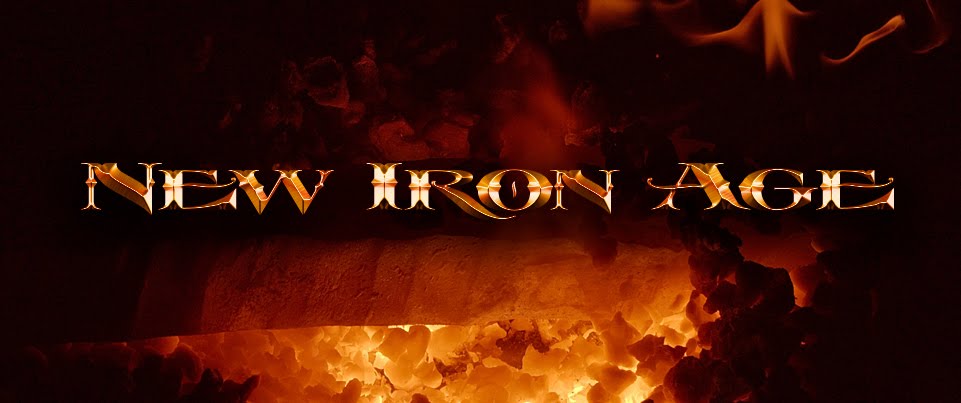This
movie almost counts as a lost classic, because it didn’t make much
impression when it was released, and has not had the distinction of
becoming a cult film, but it really, absolutely deserves to be. It
especially should be appreciated by fans of Sword & Sorcery and
Howard, because this is, without doubt, the most Howardian movie ever
made.
Directed
by British filmmaker Neil Marshall in 2010, Centurion is the
story of the historical 9th Legion, which vanished
sometime in the 2nd century and has long been thought to
have been destroyed in some unrecorded military disaster in northern
Britain. Since we don’t know for sure what happened, it has been
fertile ground for imaginings, with numerous books and films happy to
fill in the details history has not left us.
Marshall,
director of such gleeful slices of mayhem as Doomsday and The
Descent, turns this into a bloody, savage tale of revenge,
survival, and treachery laced with gruesome violence and gorgeous
cinematography. Shot on location in remote corners of Scotland like
Badenoch and Strathspey, the film is filled with desolate vistas of
the cold, forbidding Scottish highlands – lands which have remained
largely unchanged in the 1800 years since the time depicted in the
movie, and still retain their brooding, prehistoric aspect. This
lends the look of the film a tremendous authenticity and atmosphere
that it otherwise would not have had.
The
cast is similarly on-point. Micheal Fassbender gives a commanding,
dynamic performance as hero Quintus Dias, and he is joined by a list
of fine actors who are all on their game, including several who would
go on to greater notoriety. Dominic West is massively charismatic in
his role as General Virilus, and former Bond girl Olga Kurylenko is
mesmerizing as the Pictish huntress Etain. Liam Cunningham (pre-Game
of Thrones) turns up, as do Riz Ahmed, Noel Clarke, and Imogen
Poots. The characters are sketched out quickly but sharply, mostly
showing who they are rather than telling, and everyone is doing good
work.
The
action scenes are symphonies of violence, not shying away from blood
to get a PG-13 nor wallowing in fake-looking CGI gore. The effects
are practical, and the battles are a litany of decapitations, slit
throats, hacked limbs, and impalements. So many of the fight scenes
can be paused at any point you like to reveal a tableau that would
stand up as a cover for any given collection of stories about the
Romans in Britain. The music, by the great Ilan Eshkeri, deserves
special mention, as it is sweeping and dramatic, elevating everything
to another level entirely.
Much
like Fury Road, Centurion is really one long chase,
with the heroes seemingly pursued from one end of Scotland to the
other by revenge-driven Pictish warriors. Kurylenko is especially
intimidating in her role as the mute huntress who will stop at
nothing to catch and destroy her enemies, and who kills and savages
men ferally and fearlessly. The script does not slow down much for
any philosophizing or brooding, but is instead a steel-edged spear
driving straight ahead. It’s a simple setup of men who will do
anything to survive pitted against others who will go to any lengths
to kill them. It expertly cranks up the tension and largely keeps it
cranked. Fassbender as Quintus starts out as a man trying to do his
duty and ends up just trying to survive against pitiless odds.
Given
how much Howard loved the Picts and how much he wrote about them,
this is like a movie he could have written himself. It is very much
in the spirit of classic tales like “Worms of the Earth” or
“Kings of the Night”, lacking only an overt supernatural element.
If it had that, then Centurion would easily be the best Sword
& Sorcery movie ever made. Lacking that, it is still the kind of
movie Howard himself would have loved, and there is more of his
spirit in it than in any movie based on anything he wrote.
Sadly,
the film didn’t do much business – mostly due to a lack of
marketing and bad reviews by weak-kneed critics who couldn’t handle
all the violence. It lost money and caused a major slowdown of
Marshall’s directing career, as he wouldn’t helm another film
until this year’s Hellboy. Nevertheless, I think Centurion
is his best work to date. It’s tight, focused, well-acted, and
gorgeous to look at – it’s amazing to me he made a movie that
looks this good for just $12 million, when films like the 2011 Conan
spent more than seven times that much and came out as bloated crap.
If you haven’t seen Centurion, then you should.






